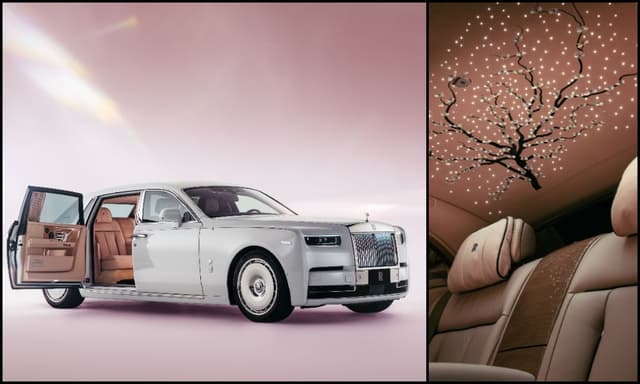Opinion: BMW Delivers An Unwelcome American Holiday Gift

Highlights
The auto industry's yuletide gift to investors turns out to be another dent in its credibility. Family-controlled BMW AG has a reputation for being run conservatively and yet it's become the subject of an investigation by the U.S. Securities and Exchange Commission into how it accounts for U.S. sales. It's getting harder and harder to rely on numbers provided by the auto industry, whether we're talking emissions figures or financial performance.
The alleged practices are unlikely to have yielded seismic benefits to the Germany luxury car giant. Dealers may have registered cars as sold when the vehicles were still on the forecourt, according to the Wall Street Journal. The possible scenario is that retailers sold cars to themselves, thereby inflating BMW's monthly sales figures, then marketed them as nearly new at a discount. The vehicles would technically be second-hand but have limited mileage, having been used as demonstrators or loan cars for customers of the service department.
BMW said it had been contacted by the SEC and would cooperate fully.
There are limits to how many vehicles a dealer can "sell" in this way. So even if malpractice is proven, it's questionable whether it would have plumped up the carmaker's sales volumes that much. What's more, history suggests the financial impact of the regulatory response could be muted. Fiat Chrysler Automobiles NV paid just Rs.285.08 crore
to settle similar charges from the SEC that it misled investors about its monthly U.S. sales figures.
But the fact remains that there's sometimes a difference between what a reasonable person might understand as a "car sale" - a customer buying a car from a retailer - and what the manufacturers and dealers call a car sale. That leaves investors in the dark.
The urge to demonstrate leadership of the U.S. market is intense because it brings marketing bragging rights, which might explain some of the pressure to increase sales figures. BMW and Mercedes fight it out every year for the largest premium automaker crown.
Clearly this development is not what BMW needs. It may not have been at the center of the industry's recent emissions and financial scandals, but it's not been immune and investors are concerned that the carmaker's range is getting tired and that it needs to accelerate its electric vehicle program.
Meanwhile, the alleged episode adds to the impression that this is a cheating industry, with consumers and investors regularly hoodwinked. That will probably increase the carmakers' cost of capital, which will depress share prices. In turn, that will make companies feel they need to do more to show they are performing on revenue metrics. And so it goes on. Stiffer penalties might force the industry into financial reporting that means what it says, and break the cycle.
Latest News
Popular BMW Models
 BMW XMEx-Showroom Price₹ 2.6 - 3.15 Crore
BMW XMEx-Showroom Price₹ 2.6 - 3.15 Crore BMW i7Ex-Showroom Price₹ 2.03 - 2.13 Crore
BMW i7Ex-Showroom Price₹ 2.03 - 2.13 Crore BMW X7Ex-Showroom Price₹ 1.27 - 1.33 Crore
BMW X7Ex-Showroom Price₹ 1.27 - 1.33 Crore BMW M4Ex-Showroom Price₹ 1.53 - 1.89 Crore
BMW M4Ex-Showroom Price₹ 1.53 - 1.89 Crore BMW M5Ex-Showroom Price₹ 1.99 Crore
BMW M5Ex-Showroom Price₹ 1.99 Crore BMW M8Ex-Showroom Price₹ 2.44 - 2.55 Crore
BMW M8Ex-Showroom Price₹ 2.44 - 2.55 Crore BMW X3Ex-Showroom Price₹ 61.9 - 87.7 Lakh
BMW X3Ex-Showroom Price₹ 61.9 - 87.7 Lakh BMW Z4Ex-Showroom Price₹ 89.3 Lakh
BMW Z4Ex-Showroom Price₹ 89.3 Lakh BMW iXEx-Showroom Price₹ 1.21 Crore
BMW iXEx-Showroom Price₹ 1.21 Crore BMW X1Ex-Showroom Price₹ 49.5 - 68.5 Lakh
BMW X1Ex-Showroom Price₹ 49.5 - 68.5 Lakh BMW 5 SeriesEx-Showroom Price₹ 72.9 Lakh
BMW 5 SeriesEx-Showroom Price₹ 72.9 Lakh BMW 7 SeriesEx-Showroom Price₹ 1.82 - 1.85 Crore
BMW 7 SeriesEx-Showroom Price₹ 1.82 - 1.85 Crore BMW M2Ex-Showroom Price₹ 1.03 Crore
BMW M2Ex-Showroom Price₹ 1.03 Crore BMW 3 SeriesEx-Showroom Price₹ 62.6 - 74.9 Lakh
BMW 3 SeriesEx-Showroom Price₹ 62.6 - 74.9 Lakh BMW 3 Series Gran LimousineEx-Showroom Price₹ 60.6 - 62.6 Lakh
BMW 3 Series Gran LimousineEx-Showroom Price₹ 60.6 - 62.6 Lakh BMW i4Ex-Showroom Price₹ 72.5 - 77.5 Lakh
BMW i4Ex-Showroom Price₹ 72.5 - 77.5 Lakh BMW 2 Series Gran CoupeEx-Showroom Price₹ 43.9 - 46.9 Lakh
BMW 2 Series Gran CoupeEx-Showroom Price₹ 43.9 - 46.9 Lakh BMW X4Ex-Showroom Price₹ 71.9 - 96.2 Lakh
BMW X4Ex-Showroom Price₹ 71.9 - 96.2 Lakh BMW X5 MEx-Showroom Price₹ 2.08 Crore
BMW X5 MEx-Showroom Price₹ 2.08 Crore BMW X5Ex-Showroom Price₹ 96 Lakh - 1.1 Crore
BMW X5Ex-Showroom Price₹ 96 Lakh - 1.1 Crore BMW iX1Ex-Showroom Price₹ 66.9 Lakh
BMW iX1Ex-Showroom Price₹ 66.9 Lakh BMW 6 Series Gran TurismoEx-Showroom Price₹ 73.5 - 78.9 Lakh
BMW 6 Series Gran TurismoEx-Showroom Price₹ 73.5 - 78.9 Lakh BMW ix1 LEx-Showroom Price₹ 17.99 - 20 Lakh
BMW ix1 LEx-Showroom Price₹ 17.99 - 20 Lakh BMW i5Ex-Showroom Price₹ 1.19 Crore
BMW i5Ex-Showroom Price₹ 1.19 Crore














